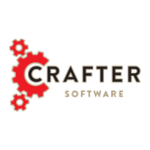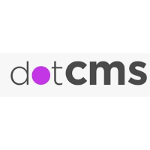List of Best Java CMS Software
Showing 10 of 10 productsOpenCMS is a and user-friendly content management system that simplifies the process of creating, managing, and publishing digital content. With its intuitive interface and robust features, OpenCMS is the ideal tool for businesses and organizations l...Read OpenCMS Reviews
BloomReach Experience Manager, a powerful new tool that helps businesses seamlessly manage their online presence. With its user-friendly interface features, it empowers companies to deliver personalized and engaging experiences to their customers. Re...Read BloomReach Experience Manager Reviews
Butter CMS is a powerhouse content management system that allows businesses and developers to effortlessly create and manage their websites content. With its user-friendly interface and robust features, Butter CMS streamlines the process of building...Read Butter CMS Reviews
CentricMinds is a software that empowers businesses to create, manage, and share their digital content efficiently. With its user-friendly interface features, CentricMinds is a solution for businesses looking to streamline their content management pr...Read CentricMinds Reviews
Crafter CMS is a reliable and powerful content management system that simplifies the creation and management of dynamic websites and digital experiences. With its user-friendly interface capabilities, Crafter CMS empowers businesses of all sizes to e...Read Crafter CMS Reviews
dotCMS is a versatile and powerful content management system that offers businesses of all sizes a user-friendly platform to create, manage, and publish digital content. With a robust set of features and a flexible design, dotCMS simplifies the proce...Read dotCMS Reviews
Feathery the innovative software that simplifies your workload and maximizes your productivity. With intuitive features and seamless integration, Feathery helps you stay on top of tasks and collaborate efficiently with your team. Say goodbye to the h...Read Feathery Reviews
Nora CMS is a user-friendly is a content management system designed to streamline your website management process. Say goodbye to complicated interfaces and hello to a simple platform that allows you to update and organize your content with ease. Say...Read Nora CMS Reviews
OpenWGA is an innovative and dynamic content management system designed to streamline your online presence. With its versatile features and user-friendly interface, it empowers individuals and businesses to create and manage engaging websites effortl...Read OpenWGA Reviews
Magnolia CMS is a content management system that allows businesses to effortlessly create, manage, and publish content on their websites. With its user-friendly interface features, Magnolia CMS simplifies the process of content creation, making it th...Read Magnolia CMS Reviews
- What Is Java CMS Software?
- Top Reasons Why Businesses Need Java CMS Software?
- What Are the Top Key Features of Java CMS Software?
- What Are the Top Benefits of Java CMS Software?
- What Are the Steps to Choose the Right Java CMS Software?
- What Are the Types of Java CMS Software for Different Industries?
- What Are the Technology Trends for Best Java CMS Software?
- What Are the Deployment Options for Java CMS Software?
What Is Java CMS Software?
The Java Content Management System (CMS) software is a web-based program that is utilized for the creation, management, and organization of many content forms. The provision of a platform for users to publish and manage their content is a highly effective method.
The Java material Management System (CMS) software facilitates user authentication and enables the creation and administration of many forms of material, including textual, visual, auditory, and multimedia elements, which are systematically structured within a website. Users have the ability to access their published material from any computer or device.
This feature facilitates seamless collaboration and efficient sharing of crucial information over the Internet. information Management System (CMS) software typically incorporates a "editor" functionality that facilitates the seamless uploading, modification, and previewing of information.
In addition, access control is a feature that enables administrators to effectively govern user privileges pertaining to various portions of a website.
Furthermore, java content management system frequently encompasses a comprehensive assortment of plug-ins, so enabling users to access a wide range of tools for tasks like as photo editing, interactive quiz creation, and various other functionalities.
The utilization of Java CMS software facilitates the seamless management and timely updating of websites, granting users the ability to access and administer their respective websites.
Furthermore, it offers users efficient and uniform tools for publishing material. The Java CMS software possesses a user-friendly interface, rendering it well-suited for a diverse range of entities including small enterprises, major corporations, nonprofits, and other organizations seeking to optimize their content management processes.
Top Reasons Why Businesses Need Java CMS Software?
1. Improved website performance- JThe utilization of ava CMS software has the potential to enhance the efficiency of a website, hence improving the user experience through the optimization of content accessibility and user-friendliness.
2. Streamlined development- The Java Content Management System (CMS) facilitates efficient and expedient development of novel content and apps for a website by developers.
3. Increased scalability- The utilization of the best Java CMS software empowers enterprises to effectively administer a continuously expanding volume of online content and applications.
4. Reduced maintenance costs- The utilization of Java CMS software facilitates the automation of content and application upgrades, resulting in a significant reduction in maintenance expenses.
5. Reduced development time- Efficiently expedite the creation of novel services and content through the use of Java CMS software, hence obviating the need for laborious coding from the ground up.
6. Increased engagement- Java based content management system enables businesses to develop sophisticated and captivating customer experiences, facilitating enhanced customer engagement.
7. Open source flexibility- Java content management system (CMS) software facilitates the seamless integration of open source applications into a company's pre-existing website infrastructure, thereby obviating the need for supplementary financial commitments.
8. Faster deployment cycles- The best Java CMS software offer the advantage of automated deployment and testing processes during software release, hence enhancing the efficiency of deployment cycles.
9. Easier customisation- Organizations have the ability to tailor their website to meet their specific needs by utilizing Java CMS software, even without possessing any prior coding expertise.
10. Security- The Java Content Management System (CMS) software offers a robust and protected environment that incorporates data encryption, safe access control mechanisms, and integrated authentication protocols.
11. Automated workflow- The utilization of Java CMS software enables the automation of many workflows, including content publishing and approval processes.
12. Easy Web Page editor- The utilization of Java CMS software enables firms to conveniently modify and generate web pages in accordance with their own needs and preferences.
13. Templating- Enables enterprises to generate many websites with a same site template, while incorporating distinct content and functionalities.
14. Data Analytics- Enables enterprises to generate many websites with a same site template, while incorporating distinct content and functionalities.
15. Multi-channel publishing- Java based content management system technology facilitates the seamless dissemination of material across many target audiences, hence streamlining the process for enterprises.
What Are the Top Key Features of Java CMS Software?
1) Cross-Platform Compatibility: The Java Content Management System (CMS) software is specifically developed to operate seamlessly across diverse platforms, enabling users to conveniently get content regardless of their location or the device they are using.
2) Flexibility: Java content management system systems include a high degree of configurability and are readily customizable to meet the specific requirements of every business.
3) Scalability: The best Java CMS software are designed to be scalable, enabling organizations to efficiently manage expansion or adapt to changes in their operations in a timely and cost-efficient manner.
4) Multi-Language Support: Java based content management system provide comprehensive assistance for several programming languages, facilitating the seamless and efficient deployment of content and applications by developers proficient in any programming language.
5) Secure Access: The best Java CMS software are designed with a strong emphasis on security, prioritizing the protection of company, consumer, and employee data to maintain its confidentiality and integrity.
6) User-Friendly Interface: Java content management system (CMS) solutions offer a user-friendly interface that facilitates ease of use and navigation, hence ensuring a straightforward and intuitive user experience.
7) Robust Extensibility: Java based content management systems possess a high degree of extensibility, enabling developers to construct bespoke apps, websites, and integrations.
8) Cost-Effective Deployment: The Java CMS software is characterized by its cost-effectiveness and affordability, making it accessible to organizations of various scales, enabling them to swiftly adopt and use the program.
What Are the Top Benefits of Java CMS Software?
1. Easy to Use: The Java Content Management System (CMS) offers a user-friendly interface that facilitates efficient system navigation and expedites content creation for users. Additionally, it facilitates the utilization of various user roles, so enabling members of the content team to personalize their workspace.
2. Scalability: The best Java CMS software exhibits a notable degree of scalability, hence offering the capacity to adapt and expand in accordance with the evolving requirements of a company.
3. Cost-Effective: The Java Content Management System (CMS) offers a cost-effective solution for enterprises of varying sizes. It presents a user-friendly platform that facilitates the seamless integration of supplementary functionalities in a timely manner.
4. Secure: The Java based content management system offers a robust and secure framework for the storage and dissemination of vital corporate information, while also facilitating the administration of user access privileges across several levels.
5.Freedom to Customize: The Java Content Management System (CMS) facilitates developers in tailoring the system to suit individual requirements by granting them authority over the CMS's behavior and modification options.
6.Integration Ready: The Java Content Management System (CMS) exhibits seamless integration capabilities with various services, hence facilitating the development of customized applications in a manner that is both quick and cost-effective.
7. Instant Updates: Users of Java based content management system are able to experience nearly instantaneous system updates, thereby guaranteeing that they remain current with the most recent features and security patches.
8. Performance Optimization: The best Java CMS software is specifically engineered to enhance performance by swiftly and expeditiously delivering web applications, even when subjected to high and continuous levels of demand.
What Are the Steps to Choose the Right Java CMS Software?
1. Consider the features that the CMS needs to provide: The system should be equipped with essential functionalities, including content creation and management, taxonomy and metadata creation, and access and authentication control.
2. Evaluate the server requirements: Please conduct an evaluation of the server prerequisites for the program, encompassing factors such as compatibility with the operating system, database specifications, and hardware prerequisites.
3. Research various CMS options available: Conduct an investigation into several categories of Content Management Systems (CMSs) now accessible in the marketplace. Examine the diverse attributes and functionalities of each option and ascertain which ones most effectively align with the specified criteria.
4. Compare cost and scalability: This study aims to conduct a comparative analysis of the cost associated with various content management system (CMS) solutions, while also considering their respective scaling capabilities.
5. Consider installation and operation requirements: The examination of the installation and operational prerequisites of the CMS software include factors such as the requisite level of knowledge and the temporal and labor-intensive commitment entailed.
6. Test the selected CMS: Conduct a comprehensive evaluation of the chosen program to verify its functionality and ascertain its compliance with all specified criteria.
What Are the Types of Java CMS Software for Different Industries?
Java-based content management systems (CMS) provide enterprises with a diverse range of choices for the creation and administration of digital content. The features and capabilities offered by various types of java CMS software may vary depending on the individual industry. The portal CMS is a prevalent form of Java content management system.
This particular software is commonly employed for the purpose of overseeing extensive and intricate websites, providing a diverse range of functionalities such as content administration, user and access administration, workflow and development tools, as well as integration with other applications.
Another variant of Java based content management system is the blog CMS. This particular program is well-suited for the purpose of designing and overseeing websites that incorporate elements such as blogs, podcasts, photo galleries, and various other forms of content. These systems provide fundamental features for blogging, including cross-linking, search engine optimization, and automated syndication to external websites.
In the realm of electronic commerce operations, there exist specialized java content management system (CMS) solutions that are designed to cater to the specific needs of building and effectively administering online shopping websites. These systems provide crucial functionalities, including payment processing, safe online transactions, connectivity with shopping carts, and capabilities for content management.
In the field of education, there exist Java content management system (CMS) solutions that are specifically designed to facilitate the creation and administration of websites dedicated to educational purposes. These systems have similar functionalities as standard Java CMS software, including blogging, user management, and content management features.
However, they also incorporate additional specialized tools such as discussion forums, quizzes, and course management capabilities. In the health care market, firms can avail themselves of specialized java CMS solutions designed specifically for the purpose of developing and overseeing medical websites.
These systems provide a safe means of accessing and managing patient information, ensuring the confidentiality and integrity of medical data.
Additionally, they provide secure access to e-prescriptions, lab results, and other forms of confidential medical paperwork.
What Are the Technology Trends for Best Java CMS Software?
The technology trends for the best Java CMS software include:
1. Increased Scalability: The scalability of Java CMS systems has been enhanced due to advancements in cloud computing technology, resulting in improved accessibility and manageability.
2. Automation and Artificial Intelligence: material management systems (CMS) that utilize artificial intelligence (AI) are providing developers with enhanced authority over their material, facilitating more streamlined website administration.
3. Flexibility: Java content management systems (CMS) are specifically engineered to possess a high degree of adaptability, allowing developers to tailor the CMS according to their specific requirements.
4. Security: The importance of security in CMS systems cannot be overstated, and Java CMS systems are specifically engineered to prioritize security and instill confidence in users while handling confidential data.
5. Open Source: Numerous Java content management systems (CMS) are available as open source, thereby granting developers the ability to tailor the CMS according to their own requirements and develop their own plugins and extensions.
6. Mobile Support: The mobile-friendliness of Java CMS systems is progressively improving, facilitating the accessibility and management of content across various devices.
What Are the Deployment Options for Java CMS Software?
There are three main deployment options for Java CMS software:
1. Standalone/On-Premise: This alternative entails the installation and hosting of the software on the client's proprietary servers or hardware, with the customer assuming full responsibility for the security and maintenance of both the software and hardware components.
2. Cloud/SaaS: The program has the capability to be deployed in a cloud environment and delivered as a service. This alternative entails alleviating the customer's concerns regarding the implementation, installation, and maintenance of the program, since the responsibility for these tasks will be assumed by the hosting provider. Additionally, the hosting provider will be accountable for ensuring the security of the software.
3. Hybrid: This alternative integrates the on-premise and cloud/SaaS alternatives, enabling the customer to utilize the adaptability provided by the cloud/SaaS while maintaining the customary control associated with on-premise solutions.










